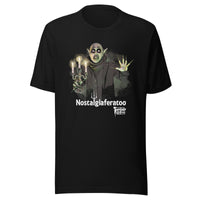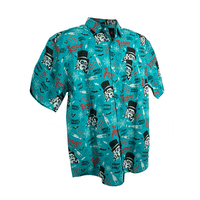The creator of Maverick was forced to change the pilot episode to keep him from collecting any royalties
Warner Bros. founder J.L. Warner would not allow any original ideas to be made into series.

The 1955-1962 series Cheyenne broke ground as TV’s first hour-long Western, but it didn’t exactly reinvent the wheel. It followed a strapping hero roaming the post-Civil War American west who could take on anyone with his guns or his fists. After writing multiple Western novels (not to mention a few movies) then working on Cheyenne, Roy Huggins wanted to try something different.
Huggins talked to the Archive of American Television about how he felt. “To me, it was just a routine Western.” He continued, “I tried to tell adult stories, but I was still telling stories about a Western hero. And I kept saying to my close friends I wanted to do a series about a guy who was not a Western hero.”
Thus, the freewheeling, conflict-dodging Maverick brothers were born. If Cheyenne Bodie would bravely walk out the front doors of the saloon to face the gunslinger ready to shoot it out in the street, Huggins wanted a protagonist who would leave “out the rear window.”
Cheyenne soon became a success and the executives at ABC asked Huggins about other ideas he had for shows. He pitched his new unconventional idea and they loved it. He didn’t run into trouble until he turned in the pilot script to Warner Bros. Though the show would air on ABC, Warner Bros. was producing it.
The story, titled “Point Blank,” was about “a guy who turns in a girl he’s fallen in love with for the reward,” Huggins told the Archive. Warner Bros. wasn’t thrilled with the idea but more for contract reasons than anything creative.
Head honcho Jack L. Warner wouldn’t allow any original ideas to be made into shows because that meant the writer would receive royalties as the creator. At the time, the mandate was so rigid, Warner Bros. wouldn’t even move forward with pitches that networks like ABC wanted to air!
One way around this rule was to adapt intellectual property that Warner Bros. already had the rights to. “They owned a book called ‘The War of the Copper Kings,’” Huggins recalled. It was about the Montana mining company Anaconda Copper and how “a con man used an old, obsolete law to force Anaconda to pay him, probably, millions.”
Huggins thought that sounded exactly like something Bret Maverick would do so he used the book as the basis for the story that would eventually become the Maverick pilot “War of the Silver Kings.”
Because the first episode is technically an adaptation and not an original idea, Warner Bros. did not owe Huggins any royalties and he never received a “created by” credit for the series. Of course, he did alright for himself in the end. Huggins did officially “create” 77 Sunset Strip, The Fugitive and The Rockford Files among others. And the original Maverick pilot, “Point Blank,” did make it into the show, just as the series’ second episode instead of first.







11 Comments

Can't say I blame him for leaving Warner Bros. for a short stint running 20th Century Fox's TV division. I think he eventually got disgruntled there as well and left the company, as well as television overall briefly, to teach at Columbia University. When he left Fox, he also left a series idea behind in a desk to be abandoned. That concept, of a man falsely accused of murder roaming the old West in search of the real killer fell into ABC's hands. ABC in turn gave it to Quinn Martin, whose production company was financed by the network. They retooled it as The Fugitive, giving Huggins credit as creator. By that time, he had returned to television, this time working for Universal and producing Kraft Suspense Theater, the first of many credits for Huggins at Universal.
You mean he did ALL RIGHT — two words. There is NO such word in the English language as “alright.”
all right
/ˈˌôl ˈrīt/
adjective
adjective: alright
satisfactory but not especially good; acceptable.
"the tea was all right"
h
Similar:
satisfactory
acceptable
adequate
good enough
fairly good
fine
passable
reasonable
unobjectionable
suitable
OK
so-so
even ain't is in the dictionary incorrect as it may be and nowhere doe it say "incorrect"
I'm shocked.
SHOCKED.











































